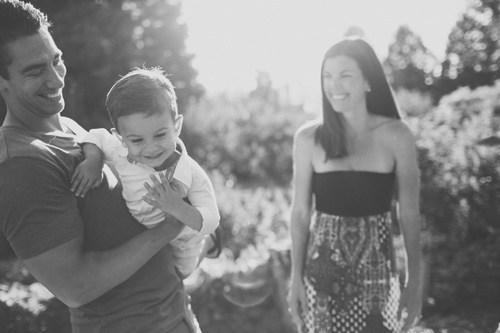
3 GREAT WAYS TO FORCE YOURSELF TO BE MORE GRATEFUL (AND A LOT HAPPIER)
Marc Chernoff
Most of us have amazing family members, friends, and other loved ones who love us back. Learn to appreciate what a gift that is. Most of us have good health, which is another gift. Most of us have eyes, with which to enjoy the amazing gifts of sunsets and nature and beauty all around us. Most of us have ears, with which to enjoy music – one of the greatest gifts of them all.
We may not have all these things, because we can’t have everything, but we certainly have plenty to be grateful for. To an extent, we know this already, and yet we forget. It happens to the best of us.
Sometimes Angel and I get so caught up pursuing the next big thing that we forget to pause and appreciate the things we have, and the things we’ve experienced, learned and achieved along the way. And the most tragic part of this is that our happiness takes a major hit.
The Science of Gratitude and Happiness
As human beings, when we aren’t grateful for what we have, we aren’t capable of being happy.
This is not just some self-improvement cliché either. It’s been scientifically proven. For example, researchers in numerous positive psychology studies (like this one) have split study participants into two groups and instructed one group of study participants to reflect on the little things they are grateful for at the end of each day, while the other group just goes about their normal routines. Then, after several weeks, both groups are interviewed, and it becomes clear that the first group enjoyed considerably greater life satisfaction than the other group during that time period.
Why does this happen?
The simplest explanation is that forcing ourselves to focus on thoughts and actions related to gratitude, regardless of circumstances, helps our brains develop positive emotions. In one notable study, researchers asked participants to smile forcibly while thinking of something specific they’re grateful for. They found that this consistently stimulated mental activity associated with positive feelings and emotions.
The bottom line for most of us (severe depression and other related mental illnesses notwithstanding) is pretty clear: when we force ourselves to be grateful by making gratitude a part of our daily routines, we actually feel a lot happier.
How to Force Yourself to Be More Grateful
In the end, the secret to being grateful is no secret. You choose to be grateful. Then you do it again and again. If you forget, begin again.
There are, however, three specific gratitude strategies that Angel and I often cover with our students and coaching clients. We’ve literally seen these strategies work wonders for people over the past decade (and we practice them ourselves too). I encourage you to implement them, gradually, one at a time, into your life.
1. Practice a private, evening gratitude ritual.
Here’s a super simple, five-minute, evening gratitude ritual:
Every evening before you go to bed, write down three things that went well during the day and their causes. Simply provide a short, causal explanation for each good thing.
That’s it. We spend tens of thousands of dollars on expensive electronics, big homes, fancy cars, and lavish vacations hoping for a boost of happiness. This is a simple, free alternative, and it works.
If you begin this ritual this evening, you just might be looking back on today many years from now, as the day when your whole life changed.
2. Practice giving thanks publicly.
Although gratitude comes from within, the public expression of gratitude is important too. In his best selling book, Authentic Happiness, the renowned positive psychologist Martin Seligman gives some practical suggestions on how to do this. He recommends that we ritualize the practice of expressing gratitude in letters to friends, family, coworkers, and other people who we interact with in our community.
Angel and I have put this gratitude strategy into practice in our own lives by ritualizing it into our morning routine. We write a short email, text message, or letter each morning to one specific person, mindfully thanking and praising them for what they do that makes our lives a little brighter.
3. Practice reflecting on the little things you are grateful for.
It’s fairly easy to remember to be grateful for the big and obvious things that happen — a new addition to the family, a great promotion at work, a significant business breakthrough, etc. But the happiest people find ways to give thanks for the little things too. Ponder these perspective-shifting points:
- You are alive.
- You didn’t go to sleep hungry last night.
- You didn’t go to sleep outside.
- You had a choice of what clothes to wear this morning.
- You haven’t spent a minute in fear for your life.
- You know someone who loves you.
- You have access to clean drinking water.
- You have access to medical care.
- You have access to the Internet.
- You can read.
Be honest: when was the last time you were grateful for simply being alive, or going to sleep with a full belly? More specifically, think of all the little things you experience — the smell of a home-cooked meal, hearing your favorite song when it randomly comes on the radio, seeing a marvelous sunset, etc.
Pay attention, and be grateful.
Truly, the richest human isn’t the one who has the most, but the one who needs less. Wealth is a mindset. Want less and appreciate more today. And remember, the best time to focus on being grateful is when you don’t feel like it. Because that’s when doing so can make the biggest difference.
As for me, I wrap up this article with gratitude to YOU.




